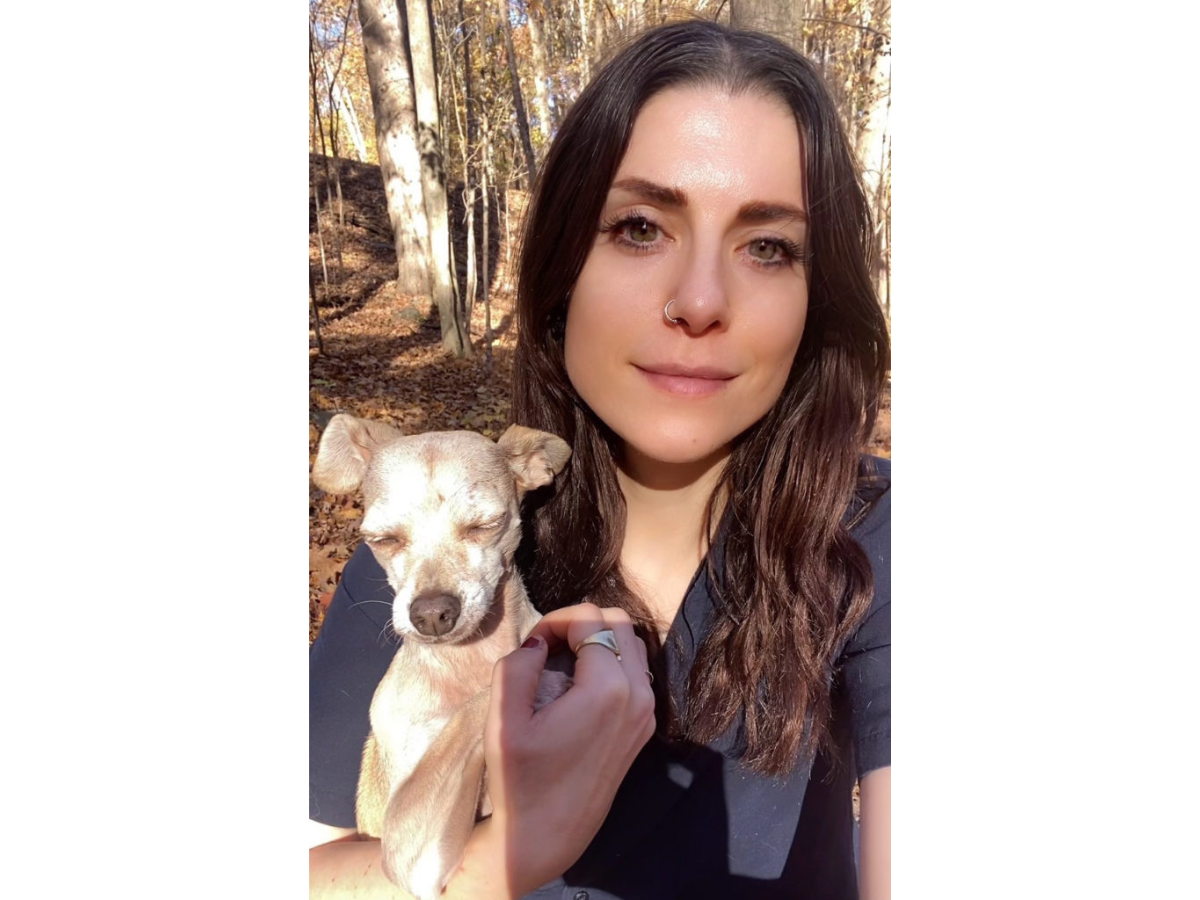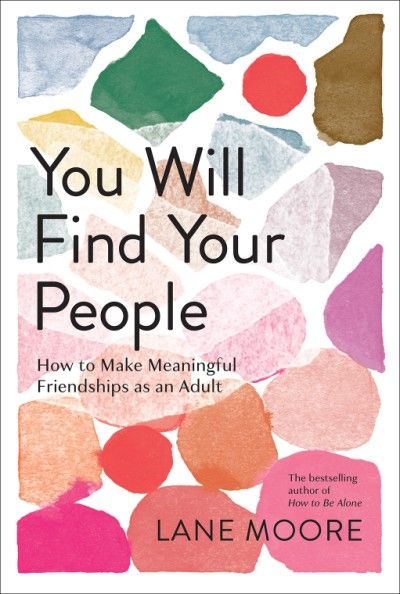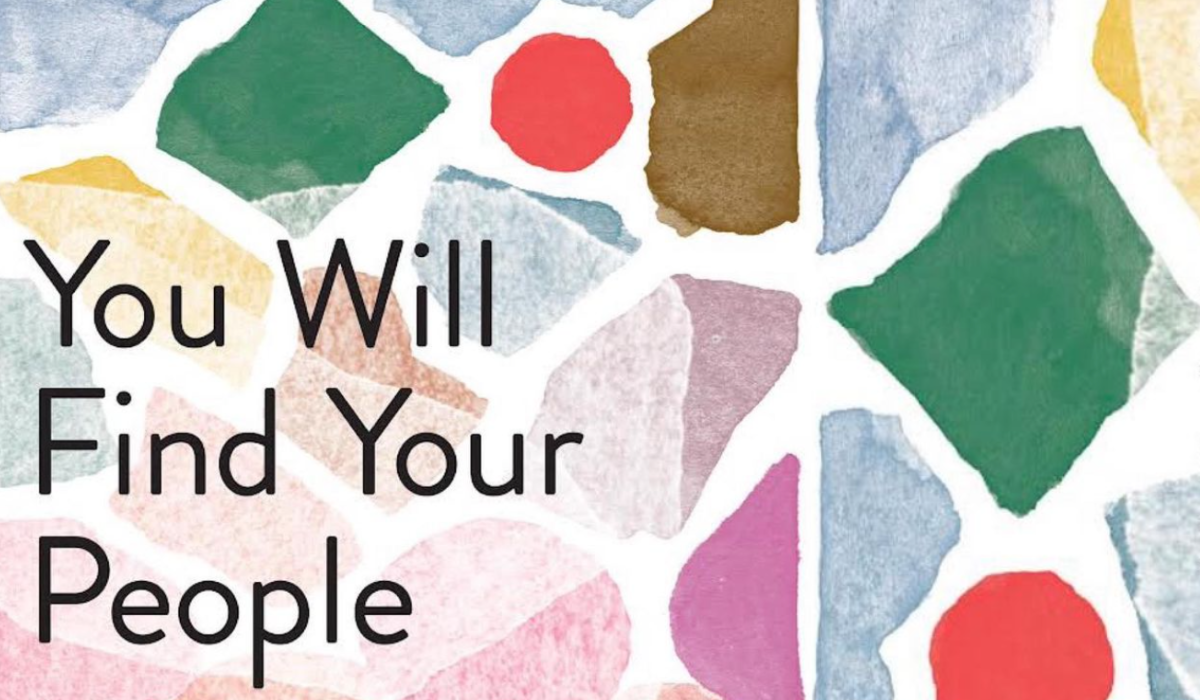In Our Lonely World, Comedian Lane Moore Is Helping Us Find Our People—No Matter Our Age
So much of the mainstream belief about friendship is that it comes easily. Movies and TV make us think that once we’ve settled into adulthood, we should have our people, our staunch friend group, who see us through it all. Comedian, actor, and writer Lane Moore acknowledges the beauty of that scenario, but she challenges it with compassion: Deep, meaningful friendship after our school years can be elusive, she believes.
Moore’s honest take on finding and making friends feels hopeful, especially in our lonely world. In her new book You Will Find Your People: How to Make Meaningful Friendships as an Adult, she offers us a heartfelt guide for navigating the convoluted world of friendship, including how to make true friends later in life and deepen the company we have. The Sunday Paper chatted with her to discuss what we get wrong about friendship and how we can open ourselves to the companionship we all deserve.
A CONVERSATION WITH LANE MOORE
You write that friendships require so much timing, luck, communication, and puzzle-piece compatibility. In essence, we think that making friends should come easily. What are we getting wrong?
So many of us get into a comparison spiral. We look at other people's friendships on social media, TV, or from the outside, and we think, Oh, they're doing it right. I don't have that, which must be because I don't deserve it. We attach all this worthiness to whatever we think our friendship should look like and what we see other people have. There is all this expectation versus reality. We assume everybody else is doing [friendship] better than we are and therefore are more worthy. And that's one of the biggest things I wanted to dispel in this book because it's so painful. You're already struggling with having a community you want and dealing with all this shame because you don't have it.
You also write that we tend to emphasize romantic partnerships but shortchange friendships. How so, and why is this important?
That's another big thing. So many of us have spent so much of our lives focusing on whether we have the perfect partner because we're told that that matters and nothing else. We think that's the only thing that needs to happen. But even if you do get into a romantic relationship, even when you do find it, you still need friends. It's silly that we have made it so that romantic relationships are all we need to focus on when, in reality, your friends will be the ones there for you if that relationship ends. Also, you can't get everything from your partner. [Expecting that] is not good for the relationship.
So, we have a flawed system where we're saying, ‘Hey, the only community you get in life is through the family you're born into or the person you marry.’ And that's leaving out a lot and putting a lot of pressure on whether you have those.
In seeking meaningful friendship, rather than suggesting to people, 'Join a club!' you offer a more contemplative, deeper way to view it. Considering that, where is a good place for something to start?
I did an interview recently, and they said, 'I'm sure you have some good tips, like joining a club or going to a mixer.' But actually, my book is the antithesis of all of that! That is not the advice I give. I don't like oversimplified advice. I believe people are tired of being told that they need to make finding friends a full-time job and that there's something they must fix about themselves. I'm exhausted by that advice, and it's not getting to the root issue.
To that end, it's okay to take a second and think. The classic advice would be to grind more, work harder, and get out there. I believe we need to sit down with ourselves and take a minute to reassess how we've approached friendships and what we actually want. It's important to look at the state of what our friendships have been like. Too often, we tend to think that friendships are about whoever comes along and chooses you. Instead, I remind people that you get to choose. This is such an important thing.
What has helped you build and nourish more meaningful friendships?
Asking for what I needed in my friendships was huge for me. It may be true that one person in the friendship is getting what they need, but you may be left feeling shortchanged, strange, or not getting what you need. This is common. Again, we see the friendship on TV or in the movies as both people getting exactly what they need and never having to express what they need—so we've internalized that. Or you may feel that if you need to be clear and tell your friends what you need that it's a bad friendship, or you may hurt the other person's feelings. I want to encourage people to know what they need and want first and then ask for it. Doing that has been such a huge part of my growth because, for so long, I didn't know what I needed; I just knew I wasn't getting it.
Your dog, Lights, is a big part of your friendship world, which begs the question: No matter our age or with whom we share a friendship, what do you feel is the goal?

I'm hanging out with Lights right now, outside. I tell her all the time that she's my best friend. Again, so much of the framework of friendships is so narrow; only certain things count, and it should be easy. These rules are ridiculous, and they're making us miserable. Having a dog has been an incredible bridge in my life. I believe that anytime you can get somebody in your life, no matter who they are, and even if they're a pet, who shows you consistent love and care and who you feel is meeting your needs and you theirs, that changes your whole life. It absolutely changed mine.
If you have love in your life and connection in your life, it doesn't matter where it comes from. If you have that, you're doing great.

Lane Moore is an award-winning comedian, actor, writer, and musician. She is the creator of the hit comedy show Tinder Live and author of How to Be Alone: If You Want To, and Even If You Don't and You Will Find Your People: How to Make Meaningful Friendships as an Adult. Learn more at www.lanemoore.org.




